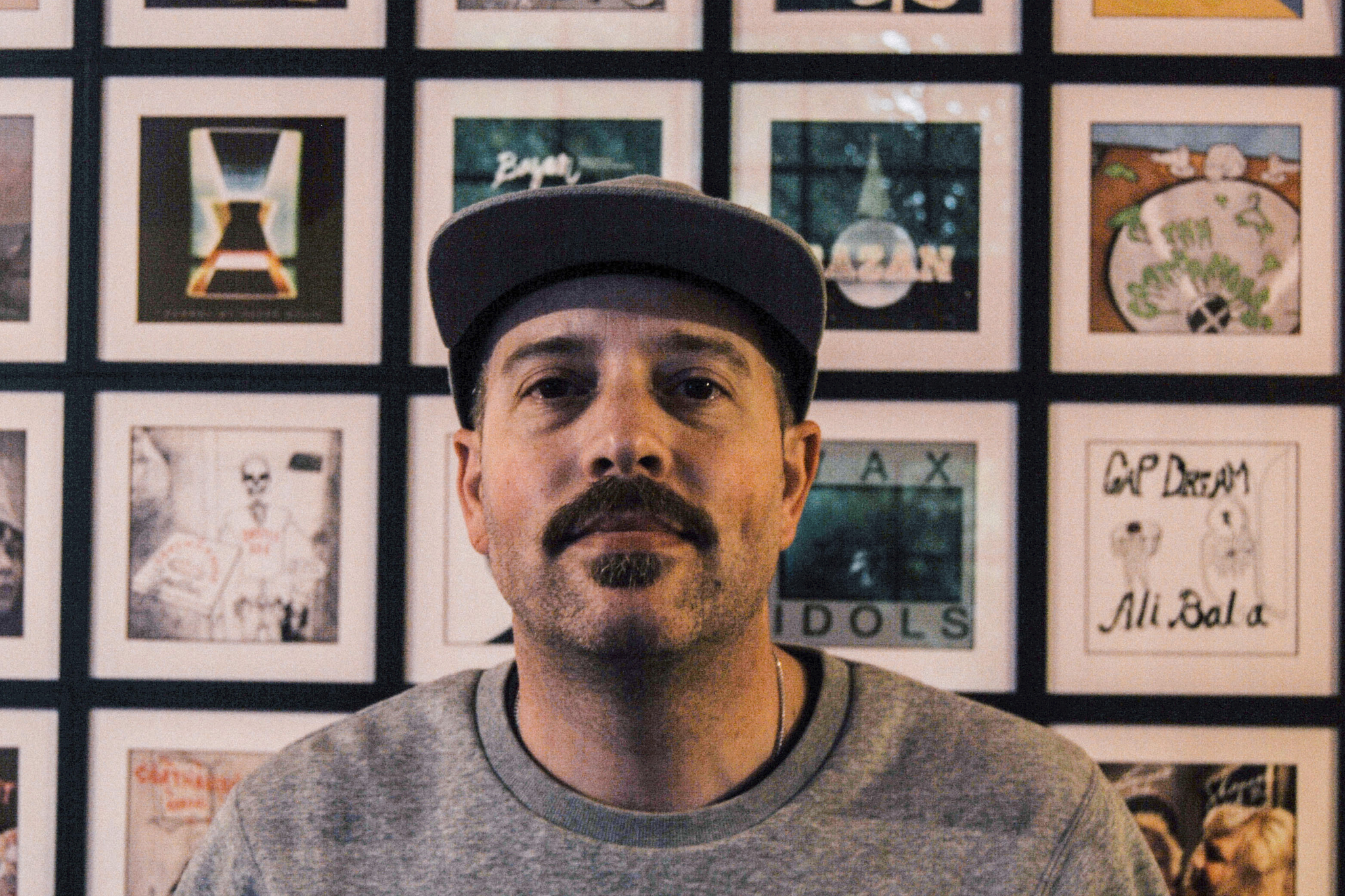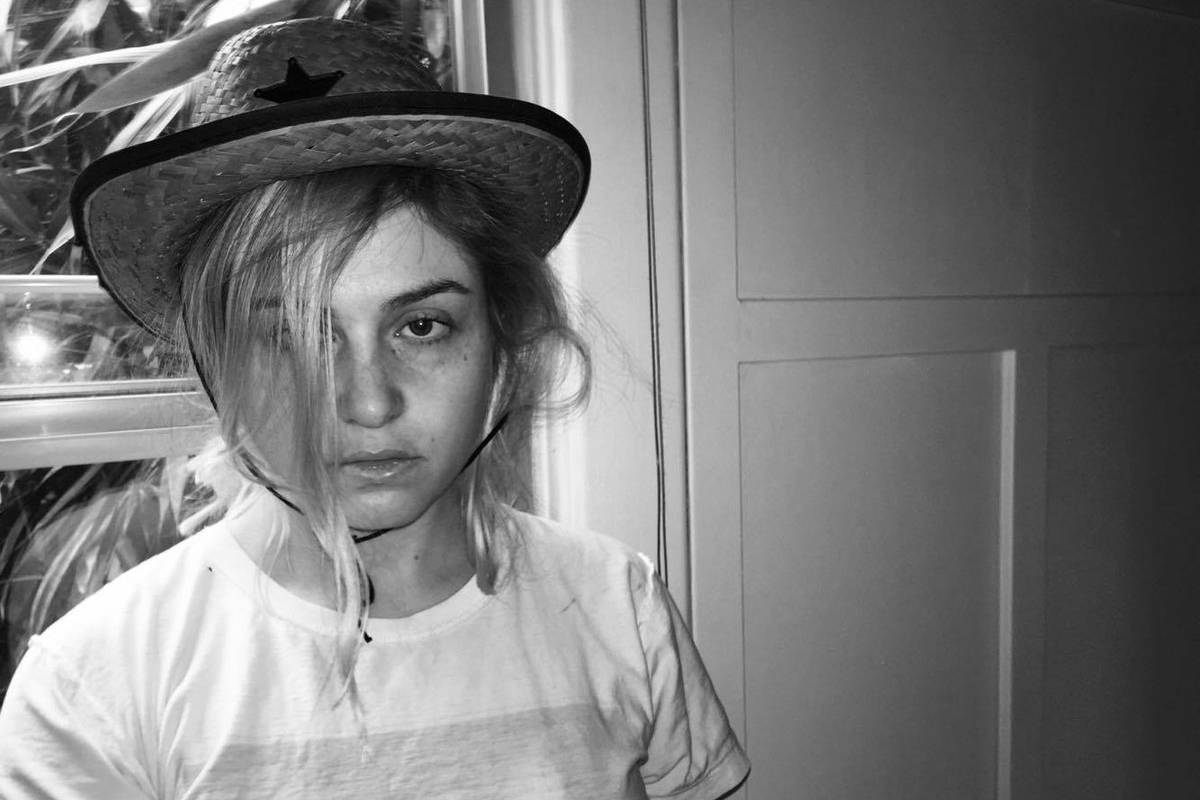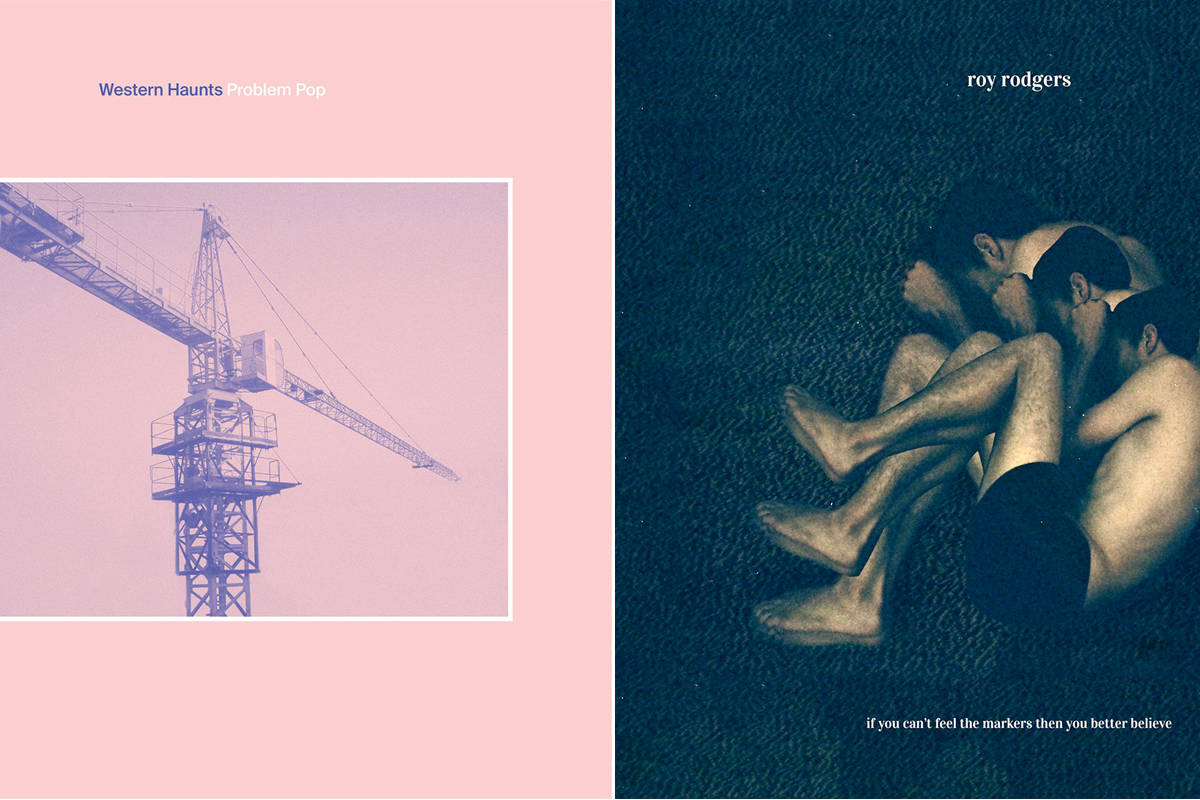The walls of Suicide Squeeze Records’ Greenwood headquarters are covered in 7-inch singles from the past two decades. No gold or platinum records with RIAA certifications or elaborate presentations, just records stacked alongside one another. The simple interior design choice speaks to label owner David Dickenson’s core mission: “I can’t state it enough that every release that we do means a lot to me,” he says. “I would never put out something that I wasn’t just so excited about and didn’t care about.”
Modest Mouse. Elliott Smith. 764-HERO. These Arms Are Snakes. Minus the Bear. La Luz. Childbirth. And so on. His good taste and devotion has paid off. Assessing Suicide Squeeze’s discography is like looking at CliffsNotes of the past two decades of Northwest music. But the label’s purview reaches across the country as well, with acts like the Coathangers, Hella, and School of Seven Bells, among many others.
This week the label celebrates its 20th anniversary. Longevity is admirable for any label, especially in an era when streaming has pushed traditional music-industry models to the brink of collapse. Despite that, Dickenson and his rotating cast of bands and employees have turned the label into a Seattle institution. And as most good stories do, it all begins with pizza.
Dickenson moved to Seattle in 1993, landing a job at Hot Lips Pizza in the U District, where he worked alongside other future music icons: 764-HERO vocalist John Atkins and Barsuk Records co-founder Josh Rosenfeld. Dickenson was only 20, but thanks to a fake ID, he would constantly go to local shows—especially those of Hush Harbor, Atkins’ band at the time. After it broke up, Atkins was looking for something new. Likewise, Dickenson’s wife, Polly Johnson, was also on the hunt for a new project. Dickenson introduced the two, and 764-HERO was forged.
Dickenson wasn’t a musician himself, but was eager to get involved. Being around 764-HERO finally inspired him to start a label. Suicide Squeeze’s first release in ’96 was 764-HERO’s single “Now You’re Swimming.” It was slow to start. Being self-funded, Dickenson’s “office” was a walk-in closet in his apartment. He was able to find a mentor in the late Chris Takino, co-founder of Modest Mouse’s first home, Up Records. “I didn’t know a lot about starting a record label. I was just like a kid trying to figure out what I was going to do with my life and not having a ton of direction,” Dickenson says.
For the first few years, business was sparse—that is, until Dickenson got a deal with Nail Distribution, around the time of the label’s ninth release. Not only did the deal give him broader reach, it also freed up funds to re-release records on CD. Until then, he and his wife were the sole forces behind the label. That changed in 2005 when he brought 22-year-old Bekah Zietz on board as label manager.
“I look back at it and I’m like, ‘Dude, you are crazy. Why would you let a 22-year-old basically help run your record label?’ ” Zietz laughs. She had just wrapped up her internship at Sub Pop when she met Dickenson through a mutual friend at Barsuk, and was brought on right after the release of Minus the Bear’s breakthrough Menos el Oso—the label’s first album to chart on the Billboard 200, selling 95,000 copies. Zietz’s first task was getting Minus the Bear played on MTV, which she did.
The two worked closely during the four years Zietz was employed at the label, taking trips to catch bands. Once, they even drove to Los Angeles to support the Coathangers’ drummer Stephanie Luke as she guested on an episode of reality show LA Ink. Dickenson eventually had to lay off Zietz when their new distributor, Touch and Go Records, began downsizing its operations; Zietz remembers Dickenson and herself crying.
The two remain close friends to this day, a testament to what Dickenson values in the label: good music and good people. Suicide Squeeze seems to resemble more a family than a label. “For me, honestly, the personal relationship is as important, if not more important, than the business relationship,” Dickenson says. “I think if you find someone that you like to work with and you enjoy what they’re doing musically, it only makes sense to dig deeper into whatever that might be.”
It’s a sentiment echoedby the label’s bands, new and old. Sifting through Suicide Squeeze’s catalog reveals a commitment to letting artists express themselves in whatever mode they see fit—in their main band, or in a one-off side project like the solo work of La Luz’s Shana Cleveland or David Bazan’s synth-heavy offshoot Headphones. Atkins was able to release two records with his side project Magic Magicians on the label as a result of Dickenson’s devotion. “He’s just a fan of music,” Atkins says. “He’s interested in everything people are doing. Whether it be a side project or solo project or a different direction, he’s going to want to at least hear it.”
Minus the Bear paid off big for the label, but Dickenson was on board before they had any sort of buzz—in fact, before they had even played a show. A friend of drummer Erin Tate, Dickenson heard the band’s early demos and asked them to do a 7-inch. When they came back with a handful of tracks, he suggested doing an EP instead. “David’s just always been 100 percent supportive of what we’ve wanted to do,” bassist Cory Murchy says. “He’s also got the best hug in the world. Whenever you see David Dickenson, you get the best hug.”
Newcomers Childbirth and VHS continue the label’s legacy of investing in promising local talent, but also extending that family. Childbirth drummer Stacy Peck remembers that when they signed their contract, Dickenson brought them a cake with their band name on it. As with the rest of his bands, he makes it a point to keep track of their personal well-being alongside the “business.” “When we’re on tour, every morning after our previous show, he’ll be like, ‘Hey, how was the show last night?’ ” Peck says. “Every single day. He’ll know what it is. He makes sure to know what’s going on with everyone in the band and make sure that everyone feels included.”
Dickenson also prides the label on giving artists freedom with their work. While he’s happy to give input, Suicide Squeeze doesn’t put the squeeze on a band’s creativity. “It’s a very personal endeavor of work,” says VHS bassist Chris Costalupes. “It doesn’t feel like there’s a bunch of people that it’s gotta get passed through. It’s just like doing stuff with your friends, but on a bit of a higher level.”
To gather this Thursday and Friday for the label’s anniversary shows, some bands had to restructure tours or commit to come to town and play for less money than they normally would, but their love for Dickenson is so strong that they made it work. “When you have that level of dedication, it’s just really hard to not let someone down,” Zietz says, adding that while working for Dickenson she would think, “I can’t fuck up because you care about this so much and I see that—that if I fuck up, then I’m the asshole.”
As devoted as the bands and employees are to him, Dickenson returns the favor tenfold. It’s hard to find where the label ends and the rest of his life begins. That hasn’t changed over the past 20 years and 145 records.
“I think about Suicide Squeeze all the time, dude,” Dickenson laughs.
music@seattleweekly.com
Suicide Squeeze 20th Anniversary
With the Coathangers, Guantanamo Baywatch, Childbirth, Audacity. Neumos. $13. 21 and over. 8 p.m. Thurs., Aug. 25.
With Minus the Bear, This Will Destroy You, David Bazan’s Headphones, Michael Nau. The Neptune. $28. All ages. 8 p.m., Fri., Aug. 26.








